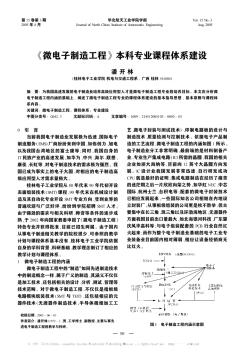Lesson One
Part I Intensive Reading: The Nature of Electricity
Part II Grammar: Parts of Speech
Part III Extensive Reading: Why do We Get a Shock from Electricity"para" label-module="para">
Lesson Two
Part I Intensive Reading: Electric Field, Potential and Voltage
Part ]] Grammar: Prefix and Suffix
Part III Extensive Reading: Electric Field and Electric Field Lines
Lesson Three
Part I Intensive Reading: Simple Electric Circuit
Part II Grammar: Word-Formation
Part III Extensive Reading: DC Biasing——BJTs
Lesson Four
Part I Intensive Reading: Semiconductor Material
Part II Grammar: Word-activity
Part III Extensive Reading: Growth of Semiconductor Materials
Lesson Five
Part I Intensive Reading: Electrochemistry Basis
Part II Grammar: Sentence Backbones
Part III Extensive Reading: The History of Electrochemistry
Lesson Six
Part I Intensive Reading: Photochemistry Basis
Part II Grammar : Sentence Elements
Part 1II Extensive Reading: Photolithography Introduction
Lesson Seven
Part I Intensive Reading: Electronic Package and High-density Interconnectivity
Part II Grammar: Complex Sentence I
Part III Extensive Reading: Electronic Packaging
Lesson Eight
Part I Intensive Reading: Printed Circuit Board Imaging
Part II Grammar: Complex sentence II
Part III Extensive Reading: HannStar Board-GBM Consolidation to Create Largest PCB Maker in Taiwan Province
Lesson Nine
Part I Intensive Reading : Plated-Through-Hole(PTH) Technology
Part II Translation Skills: Translation Standards and Process
Part III Extensive Reading: The Disadvantages of Pattern Plating
Lesson Ten
Part I Intensive Reading: Flexible Circuits
Part II Translation Skills: Conversion of Part of Speech
Part III Extensive Reading: Design of Flexible Circuits
Lesson Eleven
Part I Intensive Reading: Inspection and Test of Flexible Circuits
Part I1 Translation Skills: Translation of Complex Sentences in Scientific English
Part III Extensive Reading: Printed Electronics Make PCB "Green Up"
Lesson Twelve
Part I Intensive Reading: Introduction of Display Technology
Part II Translation Skills: Amplification and Deletion
Part II Extensive Reading: Flat Panel Buying Tips
Lesson Thirteen
Part I Intensive Reading: Liquid Crystal Display
Part II Practical Writing: Resume
Part III Extensive Reading: High Luminance and Wide Color Gamut——for clear, vivid color
Lesson Fourteen
Part I Intensive Reading: Plasma Display Panel
Part II Practical Writing: Cover Letter
Part III Extensive Reading: Full HD Plasma Pane! Creates a True Full HD 3D World
Lesson Fifteen
Part I Intensive Reading: Light Emitting Diodes
Part II Practical Writing: Reference Letter
Part III Extensive Reading: Organic Light Emitting Diodes
Lesson Sixteen
Part I Intensive Reading: Semiconductor Devices and Integrated Circuits
Part II Practical Writing : Advertisement
Part III Extensive Reading: How Solar Cells Work"para" label-module="para">
Lesson Seventeen -
Part | Intensive Reading: Semiconductor Manufacturing Processes
Part II Practical Writing: Self-Introduction
Part III Extensive Reading : Photolithography
Lesson Eighteen
Part I Intensive Reading: Packaging and Testing
Part I1 Practical Writing : Work Report
Part III Extensive Reading: Chip Scale Package
Reference2100433B

 微电子制造工程-电子工艺(SMT)技术与教育研讨会
微电子制造工程-电子工艺(SMT)技术与教育研讨会

 《微电子制造工程》本科专业课程体系建设
《微电子制造工程》本科专业课程体系建设